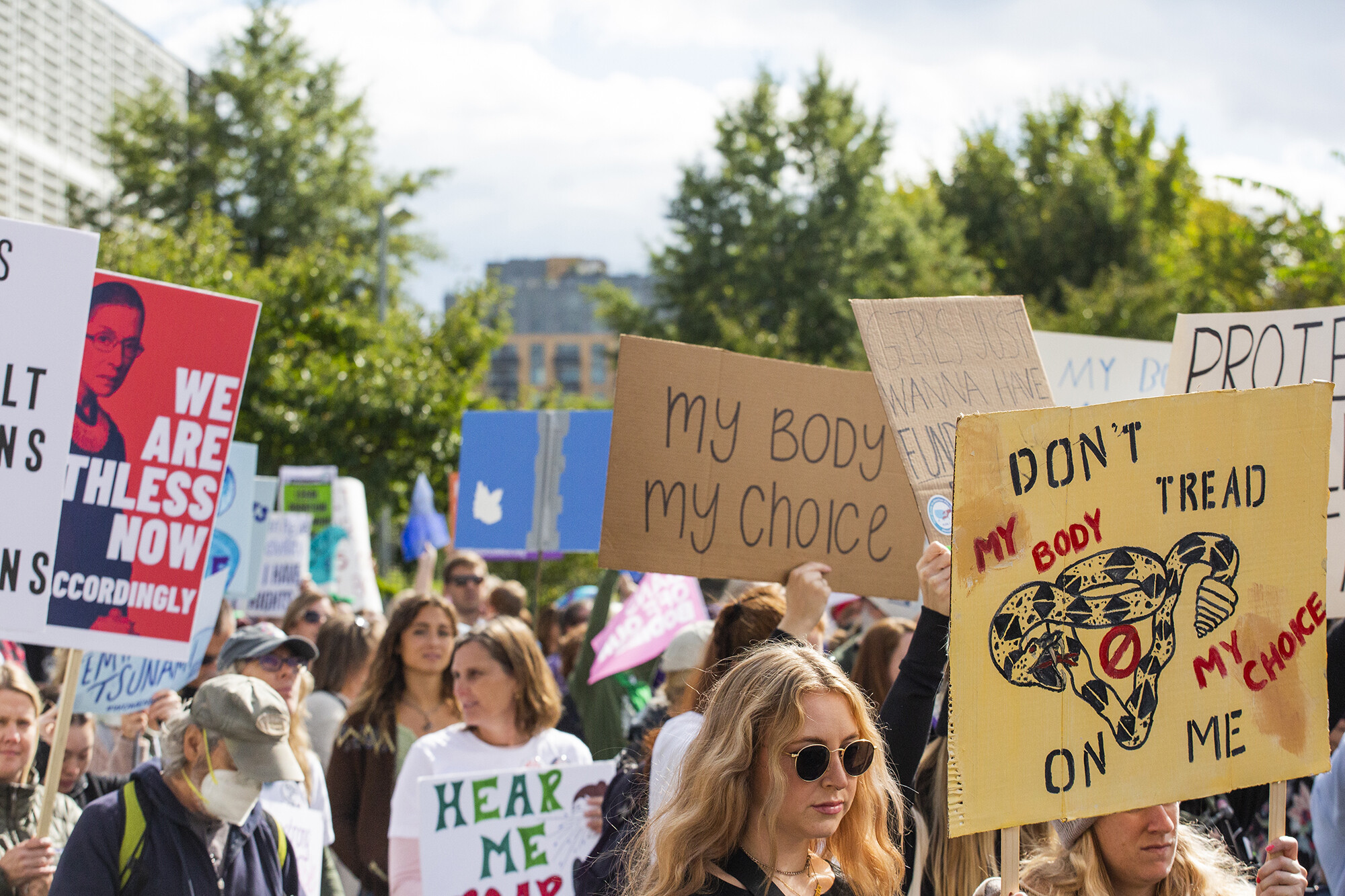
nocred

As next month’s midterms loom ever larger, both Democrats and Republicans are weighing how the Supreme Court’s decision to overturn Roe v. Wade will affect voter turnout. Will it bring out issue-only voters? What will it mean for voter enthusiasm among women and for mobilization overall?
A new survey of about 22,000 adults released Monday shows 80% of Americans say abortion will be important to their vote on Nov. 8.
The survey, by the Penn Program on Opinion Research and Election Studies (PORES)/SurveyMonkey, also shows broad support from both Republicans and Democrats for abortion rights in cases of rape, incest, and when the mother’s health is seriously endangered.
The survey of 21,730 Americans, conducted between Sept. 14 and Oct. 4, shows a vast number of Republicans support these exemptions, even as a number of GOP-controlled state legislatures across the country have enacted or are in the process of enacting total or near-total bans on abortions, and as party leaders grapple with how to approach the issue.
Nine out of 10 people polled think a pregnant woman should be able to legally have an abortion if their health is seriously endangered by the pregnancy. And 86% of respondents say a pregnant woman should be able to legally have an abortion if they become pregnant as a result of rape or incest. That includes 94% of Democrats, 88% of independents, and 76% of Republicans. (Language used in the survey was “pregnant woman.”)
“The findings are very surprising as I don’t think anyone knew the extent that Republican public opinion is so strongly against policies that ban abortion in cases of rape and incest,” says John Lapinski, of the School of Arts & Sciences. He’s the faculty director of the Robert A. Fox Leadership Program, director of PORES, faculty director of the Fels Institute of Government, and director of elections at NBC News.
The survey, with an empirical error estimate of plus or minus 4.5 percentage points, also showed that two-thirds of respondents think abortion regulations should be determined by public referendum rather than by elected officials or judges.
“If we believe that representatives should reflect the will of the people, it certainly is not working the way that it is supposed to in quite a few states that have issued these bans,” Lapinski says.
While most Americans say abortion is important to their vote, they still rank it below inflation and crime and safety in priority.
Thirty-nine percent of respondents listed the most important issue they are facing is inflation, including 57% of Republicans, 41% of Independents, and 20% of Democrats.
Marc Trussler, director of Data Science at PORES, says the group’s survey is unique because of the large sample size, which allowed them to look at specific subgroups.
“Polling gives us insights to cut through the popular narrative and see what people care about in the real world,” Trussler says. “When trying to process data of this size, what’s been key is the help we’ve had from PORES undergraduates in organizing and cleaning the incoming data every day.”
The survey’s entire results and methodology can be viewed at https://www.surveymonkey.com/curiosity/pores-poll-abortion/.
Kristen de Groot

nocred

nocred

Despite the commonality of water and ice, says Penn physicist Robert Carpick, their physical properties are remarkably unique.
(Image: mustafahacalaki via Getty Images)

Organizations like Penn’s Netter Center for Community Partnerships foster collaborations between Penn and public schools in the West Philadelphia community.
nocred